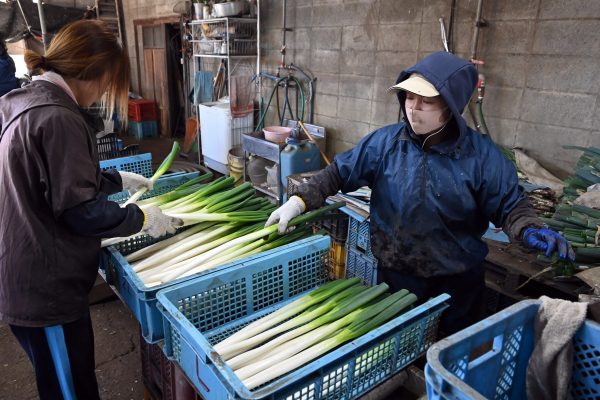The inflow of foreign residents into Japan increased from 287,100 in 2010 to 592,000 in 2019 — the fourth largest inflow in the OECD. As of October 2021, there were 2.8 million residents of foreign nationality registered in the country.
The debate on how to integrate these new residents into Japanese society is ongoing. By the end of 2021, 42 of Japan’s 1718 municipalities (excluding Tokyo’s Special Wards) had passed public ordinances establishing permanent local referendum systems and granted foreign residents voting rights in them. Zushi in Kanagawa prefecture and Toyonaka in Osaka prefecture even permitted foreign residents to vote without any special ‘period of stay’ conditions.
But in December 2021, the city assembly of Musashino in suburban Tokyo voted against (14 to 11) an ordinance that would have granted foreign residents such voting rights. Progressive Mayor Reiko Matsushita had proposed establishing a permanent local referendum system that would include foreign residents aged 18 or older who had been on the residential register for at least three months. While the referendum results would not be legally binding, the ordinance would require the mayor and the assembly to ‘respect’ them.
In March 2021, Musashino conducted a survey which found 73.2 per cent of respondents agreed that foreign residents should be able to vote in local referendums. Prior to the vote, the city was divided — a backlash from conservative and nationalist politicians and newspapers resulted in street protests against the proposal, while many grassroots community groups were supportive. Voting rights for foreigners had not been an issue in the national lower house election in October 2021, yet Musashino’s proposal gained the attention of the conservative mass media and soon became an issue of national import.
So, how did this whole controversy come about? The issue of non-citizen voting has its roots in the broader policy of local autonomy for Japan’s municipalities.
Ongoing decentralisation in favour of local councils was a key part of public sector reforms in the 1990s, and the Omnibus Law for Local Devolution came into force in 2000. This saw the first local autonomy ordinance (jichi kihon jorei) established in Niseko in 2001, and by 2012 there were 284 such laws — which are known as the ‘constitutions of municipalities’.
The dynamic changed in 2012 when national elections returned the old guard Liberal Democratic Party (LDP) to power. In 2014 the LDP directed its local branches to ‘respond carefully’ to any initiatives for the enactment of basic local autonomy ordinances. In particular, the LDP Policy Affairs Research Council warned some discretionary power of local authorities went ‘too far’ beyond Japan’s constitutional framework. Consequently, the number of new ordinances dropped from 25 in 2014 to one in 2020.
After a basic local autonomy ordinance came into force, municipalities — including Musashino — regularly started making institutional arrangements for inclusive public referendums. Most proposals for the participation of foreign residents in local referendums were based on these laws.
While some local ordinances followed national guidelines released by the Ministry of Internal Affairs and Communications, local authorities also drafted many on their own. The LDP tried to break this momentum by arguing ‘jichi kihon jorei represents a denial of the nation’.
In this political climate, Musashino’s proposal was singled out for attack by conservative groups. A group of LDP nationalist politicians, led by Seiichiro Murakami and Shigeharu Aoyama, warned that foreign residents’ rights to vote in referendums could undermine Japan’s national security as the agenda items for referendums are virtually unlimited. In opposing the city’s proposal, Murakami and Aoyama argued it ‘would lead to easily granting foreign nationals rights equivalent to suffrage’. Subsequently, 14 Musashino council members heeded these conservative attacks and voted against the proposal.
This backlash highlights the LDP’s intention to allow more foreign workers to stay in Japan — to address labour shortages — while also suppressing their rights to maintain the image of a ‘homogeneous’ nation. The Japan International Cooperation Agency has indicated that Japan will need to quadruple the number of foreign workers to over 6 million by 2040 to sustain economic growth.
But the civic and political participation of foreign residents in Japan is necessary for the sake of smooth social integration. Despite conservative protests, it is local authorities who are forced to step up, fill the vacuum and cope with the increasing pressure of foreign workers’ needs, which are not well addressed by the national government. Prospects for the further protection of foreign residents’ rights in Japan will hinge on effective policy coordination and leadership at the local level.
Yasuo Takao is Adjunct Senior Research Fellow at the School of Media, Culture and Creative Arts, Curtin University, Perth.


In my view, singling out names of some stubborn lawmakers and the LDP as culprits does not bring any change. There have been tons of such pieces and articles. There is even an western academic journal whose sole purpose is to to do that (I mean ‘Japan Focus: The Asia Pacific Journal’). Have they made any positive change in Japan? I doubt it. What is needed for ‘liberals’ is not to cry foul and try to capture international attention. What is needed is to persuade those Japanese conservatives. One can talk about ‘no taxation without representation’ kind of logic to persuade them. You can tell them misery in Japanese facilities for elders. Due to lack of manpower in Japanese facilities for senile or for dementia patients are not sufficiently functioning. Any conservatives these days must have an elder or two in her/his family in such places. The foreign workforce, that can offer help in such places, will not come to Japan and stay without sufficient rights assured; I strongly agree with the author on that. Why not persuade conservatives with that logic? Japan Forward or Sankei are the arenas where Japanese (or foreign) liberals advance their cause.